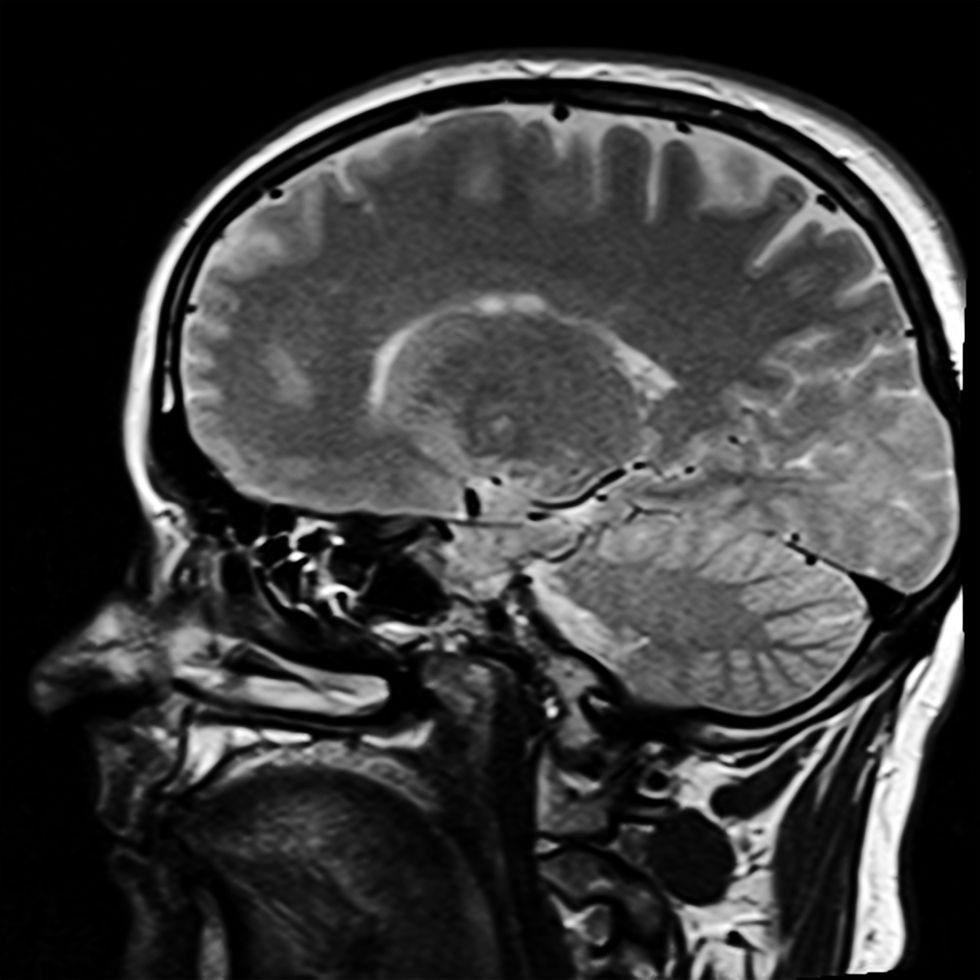I recently watched a Netflix original movie titled Brain on Fire, and don't worry I'll do my best to keep away any spoilers. The very short version is that a perfectly normal seeming, healthy 21 year old girl named Susannah Cahalan, who begins to exhibit what appear to be psychotic outbursts. Terrified of what's happening her family brings her to doctor after doctor searching for answers as to what may be wrong with their daughter. At one point Susannah even exclaims to one doctor that she must be bipolar due to the crazy mood swings that she has experienced. From bipolar disorder to schizophrenia to psychosis, Susannah receives an onslaught of different diagnoses.
Without revealing too much of the plot for those of you who may want to add it to your watchlist, one scene portrays that of Mr.Cahalan having a frustrated conversation with one of his daughters doctors who is trying to tell him that these symptoms are the result of alcohol withdrawals. In this moment Mr.Cahalan, now very upset, insists that he will not leave until his daughter is immediately admitted to the hospital to be further examined.
Now I'll admit, when I first saw this scene I had actually assumed that he was referring to wanting her placed in a psychiatric hospital. Maybe it's in part due to the fact that I've spent the last four years of my life studying psychology that made my brain automatically go to mental illness, or perhaps just my lack of proper medical knowledge. Either way, to me, everything up to this point screamed that this girl needed proper mental health care.
Turns out they were not actually referring to a mental hospital at this point in the film, but a regular one. Susannah is admitted and after many tests her doctors begin insisting that she be transported to a psychiatric facility who they believed could better treat her. Now, ladies and gentlemen, it is this very moment that brings me here at one in the morning, thoughts swirling around my head so fast I couldn't wait to write about it.
Upon suggesting that Susannah could be experiencing psychosis and need psychiatric care instead of physical, both of her parents lose it. Suddenly they are screaming at the doctors and insisting that is not the problem, because to them the worst thing in the world would be that whatever is causing these outbursts in their daughter could be something intangible, something that is essentially "all made up".
But why? This is not by any stretch of the imagination the first time that I have seen this reaction from people whether it be in movies or real life when it is suggested that their loved one may be mentally ill. How is it that mental illness has continued to be such an untouchable subject that it will not even be considered by many people?
Following the mention of psychosis, Susannah's parents are seen discussing the absurdity of this idea. Her mother even goes on to say that the doctors are only bringing up the diagnosis of psychosis at all because it is "the easy way out".
It is at this point I had to pause the movie as my mind went on its own little tangent completely separate from the movie. If psychosis had indeed been the true diagnosis, then it is extremely far from being an easy one, as was suggested by the mother. Throughout my time working in the field of mental health I have seen people go through psychotic episodes first hand, and they without a doubt have the potential to be nothing short of being completely terrifying and even life altering to go through.
Mental health often seems to be downplayed in comparison to physical health. When you break a bone people bring flowers and send cards wishing you well. When you're admitted to a psychiatric hospital people don't know what to do or say. Many ignore the situation all together and later pretend as if it never happened. Somehow it is seen as shameful, and something that should be covered up.
When someone gets surgery there is often no shame in letting people know what's going on. People ask where you were last week and commend you on how you bounced back so quickly. When someone finds out you received mental care, suddenly you've crossed the boarder into the unspeakable. They tip toe around unsure of how to act around you. Tell me, you wouldn't change how you think of someone just discharged after a surgery, so why would you change how you think of someone just released from a psychiatric facility?
Perhaps it's just that mental health is less understood. People know what it means that someone had a stroke or got appendicitis, but they don't truly understand what it means when someone is manic or psychotic. Maybe they feel as though they can't relate as much.
If you've actually seen this movie you know that when I say my brain went on its own tangent I truly mean that, as after this moment the story takes quite a turn around. In fact, after that point there is really very little to rant about.
Despite what it may seem from my above thoughts about the stigmas around mental illness, I actually did genuinely enjoy watching this film and highly recommend it to people who may enjoy seeing more of the workings of complicated medical diagnosis. And as a bonus, it's even based on a true story!











